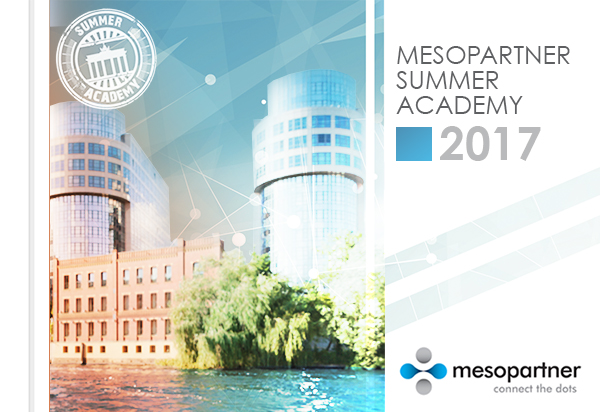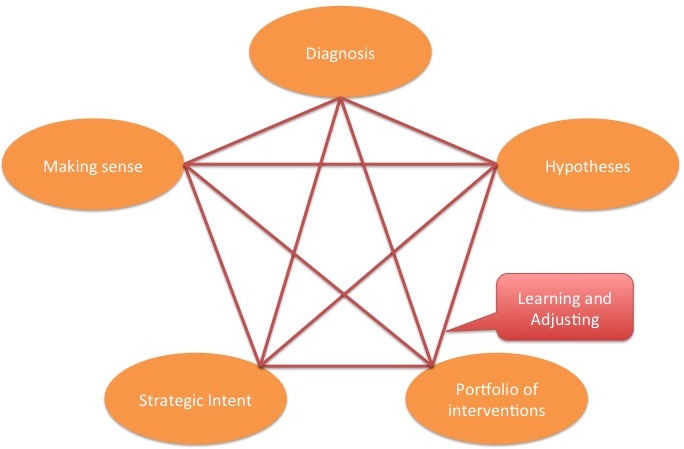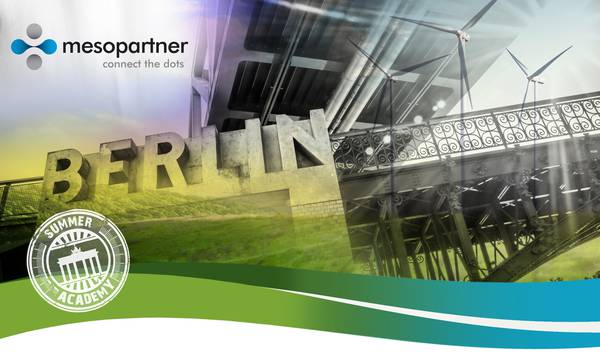 Since I have become an associate with Mesopartner in 2012, I have engaged in intense discussions with the partners around how to translate insights from complexity sciences and other quite diverse fields of research such as cognitive sciences, behavioural economics or new institutional economy into better ways in which we can support our clients who face complex challenges. The results of these discussions is Systemic Insight, a platform, approach and product focusing on supporting economic development programmes.
Since I have become an associate with Mesopartner in 2012, I have engaged in intense discussions with the partners around how to translate insights from complexity sciences and other quite diverse fields of research such as cognitive sciences, behavioural economics or new institutional economy into better ways in which we can support our clients who face complex challenges. The results of these discussions is Systemic Insight, a platform, approach and product focusing on supporting economic development programmes.
Recently, we added a page with concrete service offerings for programmes and development organisations to Systemic Insight. They include capacity building on making better decisions under conditions of uncertainty, translating results of analysis into action when facing complex challenges, supporting programmes that are stuck, and building up monitoring and learning frameworks for adaptive programme management. This also includes the use of SenseMaker®, a an approach for doing narrative research combined with a piece of software that we have started using more and more frequently.
Shawn, my main co-conspirator around Systemic Insight, and I also wrote an article that was recently published in the IDS Bulletin. You can find a brief description of the content, the abstract, and a link to the article page on the Systemic Insight Blog. The title of the article is Explore, Scale Up, Move Out: Three Phases to Managing Change under Conditions of Uncertainty and the main message is that economic development is about introducing options into local economies, not bringing solutions from the outside.
In the near future, I will focus my (re-invigorated) blogging activity on Systemic Insight. I have done some really interesting work recently and I am keen of sharing some ideas and insights with our readers. Shawn and I also want to share some of the principles and heuristics that guide our work. So please head over to Systemic Insight and subscribe to the blog! I am looking forward to your comments!





 Also this year I will be training at the Mesopartner Summer Academy, which takes place in Berlin from July 7 to 11.
Also this year I will be training at the Mesopartner Summer Academy, which takes place in Berlin from July 7 to 11. For the last years I have had the privilege to take part of and contribute to Mesopartner’s journey into the field of complexity. We started to dismantle and question almost every aspect of our instruments, tools and theories. This journey has been very much in line with my own work, pondering how complexity theory can contribute to making economic development more effective and sustainable.
For the last years I have had the privilege to take part of and contribute to Mesopartner’s journey into the field of complexity. We started to dismantle and question almost every aspect of our instruments, tools and theories. This journey has been very much in line with my own work, pondering how complexity theory can contribute to making economic development more effective and sustainable.